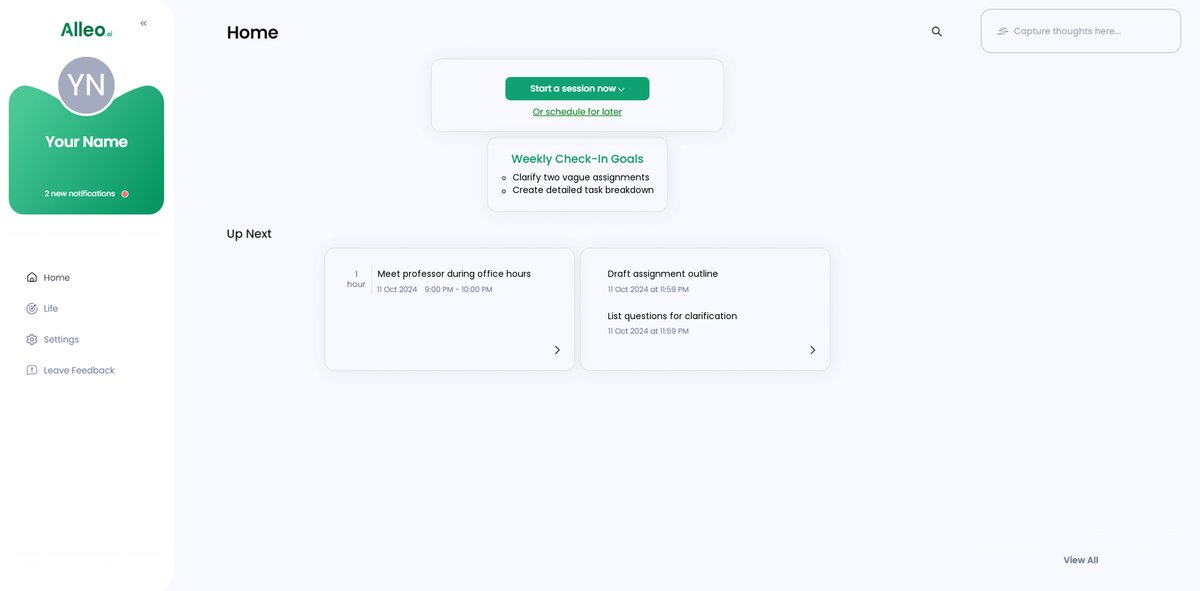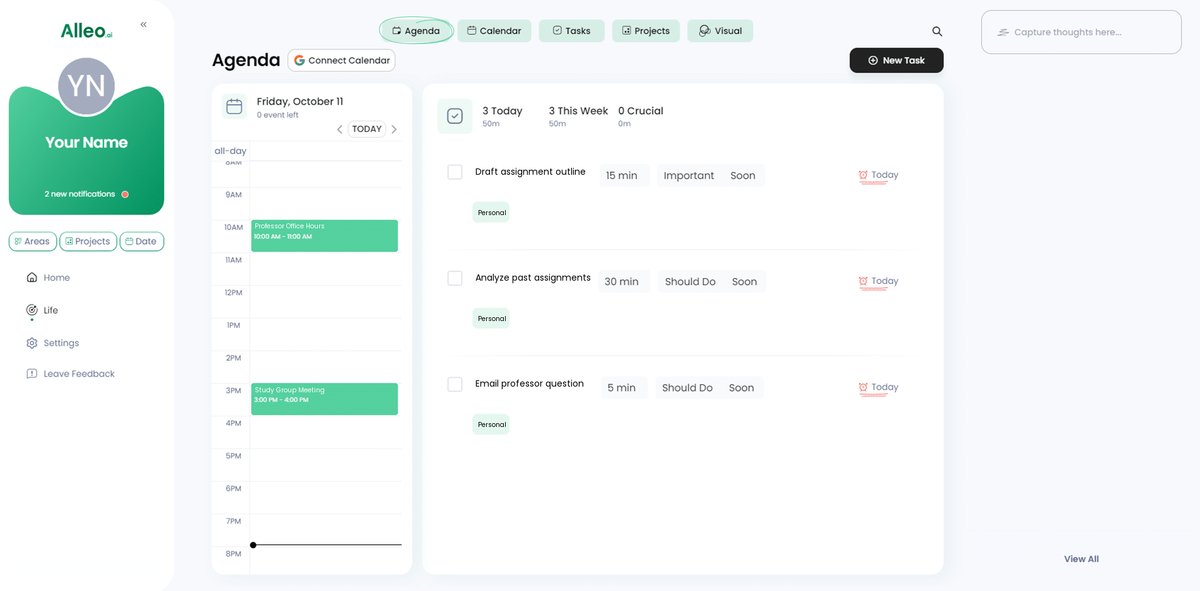Master Vague Course Requirements: 7 Proven Strategies for Student Success
Are you overwhelmed by vague course requirements and unsure how to proceed with handling unclear course assignments?
As a life coach, I’ve guided many students through similar academic challenges. Unclear assignment guidelines can lead to stress and anxiety, impacting your performance and mental health. Navigating ambiguous course expectations is a common struggle for many learners.
In this post, you’ll discover effective strategies to handle unclear requirements and clarify vague academic instructions. We’ll cover proactive communication with professors, task breakdowns, and more to help you in adapting to flexible course structures.
Let’s dive in and explore techniques for overcoming academic uncertainty.

Understanding the Impact of Vague Course Requirements
When handling unclear course assignments, it can significantly affect your academic performance and well-being. Many students find themselves feeling anxious and stressed, unsure how to meet their professors’ expectations when faced with unclear assignment guidelines.
In my experience, this confusion can lead to a lack of motivation and decreased academic success, especially when navigating ambiguous course expectations.
This issue doesn’t just affect students. Educators also struggle to communicate their expectations effectively, which can hinder the learning process and make clarifying vague academic instructions challenging.
Effective communication with professors is essential for academic success, yet vague assignments make it challenging for students to know where to focus their efforts.
Unclear requirements can lead to wasted time and effort. Instead of working confidently towards a goal, you might find yourself second-guessing every step, which impacts time management for uncertain tasks.
This uncertainty can be overwhelming, but there are strategies to navigate these challenges when handling unclear course assignments.

Roadmap to Navigating Vague Course Requirements
Handling unclear course assignments requires a few key steps. Here are the main areas to focus on to make progress when navigating ambiguous course expectations.
- Seek clarification from professors directly: Meet during office hours to discuss specific assignment concerns and clarify vague academic instructions.
- Create a detailed task breakdown for assignments: Split the assignment into smaller tasks and track your progress, essential for time management for uncertain tasks.
- Form study groups: Collaborate with classmates to discuss and clarify assignments, promoting peer collaboration in ambiguous courses.
- Use office hours for in-depth explanations: Regularly attend and ask specific questions about the assignment, practicing effective communication with professors.
- Analyze past successful work: Review high-graded assignments to understand key elements of success and develop critical thinking skills.
- Draft and request feedback on project outlines: Share drafts with professors or peers for constructive feedback, helping to overcome academic uncertainty.
- Develop self-advocacy skills: Practice assertive communication and seek resources for self-advocacy, crucial for adapting to flexible course structures.
Let’s dive in to these strategies for handling unclear course assignments!
1: Seek clarification from professor directly
Understanding the importance of direct clarification can significantly improve your ability to meet assignment expectations when handling unclear course assignments.
Actionable Steps:
- Schedule a meeting or attend office hours to discuss specific concerns about the assignment, especially when dealing with unclear assignment guidelines.
- Prepare a list of questions or points for clarification before the meeting to address navigating ambiguous course expectations.
- Follow up with an email summarizing the discussion to ensure mutual understanding and aid in clarifying vague academic instructions.
Explanation: By scheduling a meeting and preparing specific questions, you ensure that you address all your concerns, which is crucial when handling unclear course assignments.
Following up with an email helps to confirm your understanding and provides a reference for future use, supporting effective communication with professors.
Clear communication is crucial for academic success, as highlighted in this article on effective teaching strategies.
Taking these steps can help you gain the clarity you need to succeed in overcoming academic uncertainty.

2: Create a detailed task breakdown for assignments
Creating a detailed task breakdown for assignments is crucial for managing your workload efficiently, especially when handling unclear course assignments.
Actionable Steps:
- Divide the assignment into smaller tasks: Start by breaking the assignment into smaller, manageable tasks with specific deadlines, which can help in navigating ambiguous course expectations.
- Use a project management tool: Utilize a project management tool or planner to track progress on each task and stay organized, even when clarifying vague academic instructions.
- Regularly review and adjust: Continuously review your task list and make adjustments as needed to ensure you stay on track, adapting to flexible course structures.
Key benefits of task breakdown include:
- Improved time management for uncertain tasks
- Reduced overwhelm and stress when handling unclear course assignments
- Clearer progress tracking in ambiguous courses
Explanation: By breaking down assignments into smaller tasks, you can make the workload more manageable and reduce anxiety, even when facing unclear assignment guidelines.
Using tools to track your progress ensures you stay organized and focused, developing critical thinking skills in the process. Regular reviews help you adapt to any changes or challenges that arise, promoting self-directed learning techniques.
According to The Learning Accelerator, effective lesson planning and task management are essential for academic success.
Taking these steps can help you manage your assignments more effectively and reduce stress, even when handling unclear course assignments.

3: Form study groups to discuss unclear requirements
Collaborating with classmates can greatly improve your understanding of vague assignments and boost confidence when handling unclear course assignments.
Actionable Steps:
- Identify classmates facing similar challenges: Reach out to peers who might be struggling with the same unclear assignment guidelines.
- Schedule regular study sessions: Set up consistent times to meet and discuss the assignment expectations and share insights on navigating ambiguous course expectations.
- Delegate tasks within the group: Assign different parts of the assignment to group members to ensure comprehensive coverage and develop critical thinking skills.
Explanation: Forming study groups allows you to pool resources and perspectives, making it easier to grasp complex or unclear requirements and clarify vague academic instructions.
This collaborative approach can enhance learning and reduce stress when handling unclear course assignments. According to Tufts University, group work fosters effective learning and communication skills.
This teamwork can help you navigate assignments more effectively and improve overall performance in adapting to flexible course structures.

4: Use office hours for in-depth explanations
Using office hours for in-depth explanations is essential for clarifying vague academic instructions and boosting your understanding when handling unclear course assignments.
Actionable Steps:
- Attend office hours regularly: Make it a habit to visit your professor during their office hours even when you don’t have immediate questions about navigating ambiguous course expectations.
- Come prepared with specific questions: Write down specific questions or topics you need help with before attending office hours to effectively communicate with professors about unclear assignment guidelines.
- Take detailed notes: During the session, jot down key points and explanations to review later and ensure you fully understand, developing critical thinking skills for handling unclear course assignments.
Explanation: Regularly attending office hours and coming prepared with specific questions helps clear up any confusion, allowing you to focus better on your work and adapt to flexible course structures.
This proactive approach not only clarifies assignments but also builds a good relationship with your professor, enhancing self-directed learning techniques.
According to Faculty Focus, clear communication is crucial for academic success when dealing with unclear assignment guidelines.
These strategies will help you navigate vague assignments more effectively and improve time management for uncertain tasks.

5: Analyze past successful work as reference
Reviewing past successful assignments can provide clarity and direction for handling unclear course assignments.
Actionable Steps:
- Review previous high-graded assignments: Look at assignments that received high grades to identify key elements and structures for navigating ambiguous course expectations.
- Identify successful strategies: Determine what made these assignments successful, such as clarity, organization, and adherence to unclear assignment guidelines.
- Apply insights to current work: Use the identified strategies and structures to enhance the quality and clarity of your current assignments, especially when facing vague academic instructions.
Elements to focus on when analyzing past work for handling unclear course assignments:
- Structure and organization
- Depth of analysis
- Use of evidence and sources
- Writing style and clarity
Explanation: Analyzing past successful work helps you understand what professors expect and how to meet those expectations when dealing with unclear course assignments.
This approach can reduce anxiety and improve your academic performance when faced with ambiguous course expectations.
According to USC’s Writing Guide, reflective writing on past work can reveal hidden strengths and improve future performance, which is crucial for self-directed learning techniques.
Taking these steps can significantly enhance your ability to handle vague course requirements and overcome academic uncertainty.

6: Draft and request feedback on project outlines
Drafting and requesting feedback on project outlines is crucial for handling unclear course assignments and ensuring you understand and meet assignment requirements.
Actionable Steps:
- Create an initial draft or outline: Start by drafting an outline based on your understanding of the assignment requirements, especially when navigating ambiguous course expectations.
- Share the draft for feedback: Send your outline to your professor or peers and request their input on areas that need improvement, which is essential for clarifying vague academic instructions.
- Revise based on feedback: Use the feedback to refine your outline, ensuring clarity and completeness, while developing critical thinking skills.
Explanation: Creating a draft and seeking feedback allows you to catch potential errors early and align with your professor’s expectations, which is crucial when handling unclear course assignments.
According to Elizabethtown College, this iterative process is key to improving your work quality and achieving academic success, especially when dealing with unclear assignment guidelines.
This approach can help you produce well-structured assignments and reduce stress, particularly when adapting to flexible course structures.

7: Develop self-advocacy skills for academic needs
Developing self-advocacy skills is vital for handling unclear course assignments and navigating vague course requirements. These skills are crucial for expressing your academic needs effectively.
Actionable Steps:
- Practice assertive communication: Clearly express your needs and concerns to professors and peers to ensure your understanding when facing unclear assignment guidelines.
- Engage in self-reflection: Regularly assess your learning preferences and challenges to identify areas where you need support, especially when navigating ambiguous course expectations.
- Seek resources on self-advocacy: Attend workshops or find online resources to enhance your self-advocacy abilities for clarifying vague academic instructions.
Key self-advocacy skills to develop when handling unclear course assignments:
- Clear and confident communication for effective communication with professors
- Understanding your rights and responsibilities in self-directed learning
- Problem-solving and decision-making for overcoming academic uncertainty
Explanation: Developing self-advocacy skills empowers you to take control of your learning and seek the support you need when facing unclear course assignments. This proactive approach can improve both your academic performance and personal growth, helping you adapt to flexible course structures.
According to Columbia University, self-advocacy and clear communication are key to academic success and personal development.
Building these skills will help you manage your academic journey more effectively, especially when dealing with unclear course assignments and developing critical thinking skills.

Partner with Alleo to Navigate Vague Course Requirements
We’ve explored handling unclear course assignments and strategies for success. But did you know you can work with Alleo to make this journey easier and faster when navigating ambiguous course expectations?
Alleo offers affordable, tailored coaching support to tackle vague assignments and clarify academic instructions. Set up an account, create a personalized plan for self-directed learning, and work with Alleo’s AI coach to develop critical thinking skills.
The coach provides coaching sessions, follow-ups, and accountability via text and push notifications, helping you with time management for uncertain tasks and effective communication with professors.
Ready to get started for free in handling unclear course assignments?
Let me show you how to overcome academic uncertainty!
Step 1: Access Your Account
Log in to your existing Alleo account or create a new one to start tackling those vague course requirements with personalized AI coaching support.

Step 2: Choose Your Focus – Building Better Habits and Routines
Click on “Building better habits and routines” to tackle vague course requirements head-on by developing a structured approach to your studies, which will help you navigate unclear assignments more effectively and reduce academic stress.

Step 3: Select “Personal” as Your Focus Area
Choose “Personal” as your life area focus to address the challenges of vague course requirements, as it encompasses academic stress management, self-advocacy skills, and personal growth strategies essential for navigating unclear assignments and boosting your overall academic performance.

Step 4: Starting a Coaching Session
Begin your journey with Alleo by scheduling an initial intake session, where you’ll discuss your academic challenges and work with the AI coach to create a personalized plan for tackling vague course requirements.

Step 5: Viewing and Managing Goals After the Session
After your coaching session, check the app’s home page to review and manage the goals you discussed, helping you stay on track with your academic plans and navigate those vague course requirements more effectively.

Step 6: Adding events to your calendar or app
Use the Alleo app’s calendar and task features to schedule and track your progress on breaking down vague assignments, attending office hours, and collaborating with study groups, helping you stay organized and focused on overcoming unclear course requirements.

Bringing It All Together: Your Path to Clarity
Navigating vague course requirements and handling unclear course assignments can be overwhelming, but remember, you’re not alone. By implementing these strategies, you can turn confusion into clarity when faced with unclear assignment guidelines.
Start by actively seeking clarification and breaking down tasks to overcome academic uncertainty. Form study groups for peer collaboration in ambiguous courses and use office hours wisely for effective communication with professors.
Always analyze past work and draft detailed outlines for feedback, developing critical thinking skills in the process.
Empower yourself with self-advocacy skills and self-directed learning techniques, and don’t hesitate to ask for help when clarifying vague academic instructions. You’ve got this!
For personalized support in navigating ambiguous course expectations, partner with Alleo. Our tailored coaching can make a significant difference in adapting to flexible course structures.
Ready to tackle those vague assignments and improve your time management for uncertain tasks? Try Alleo today for free and see the transformation.